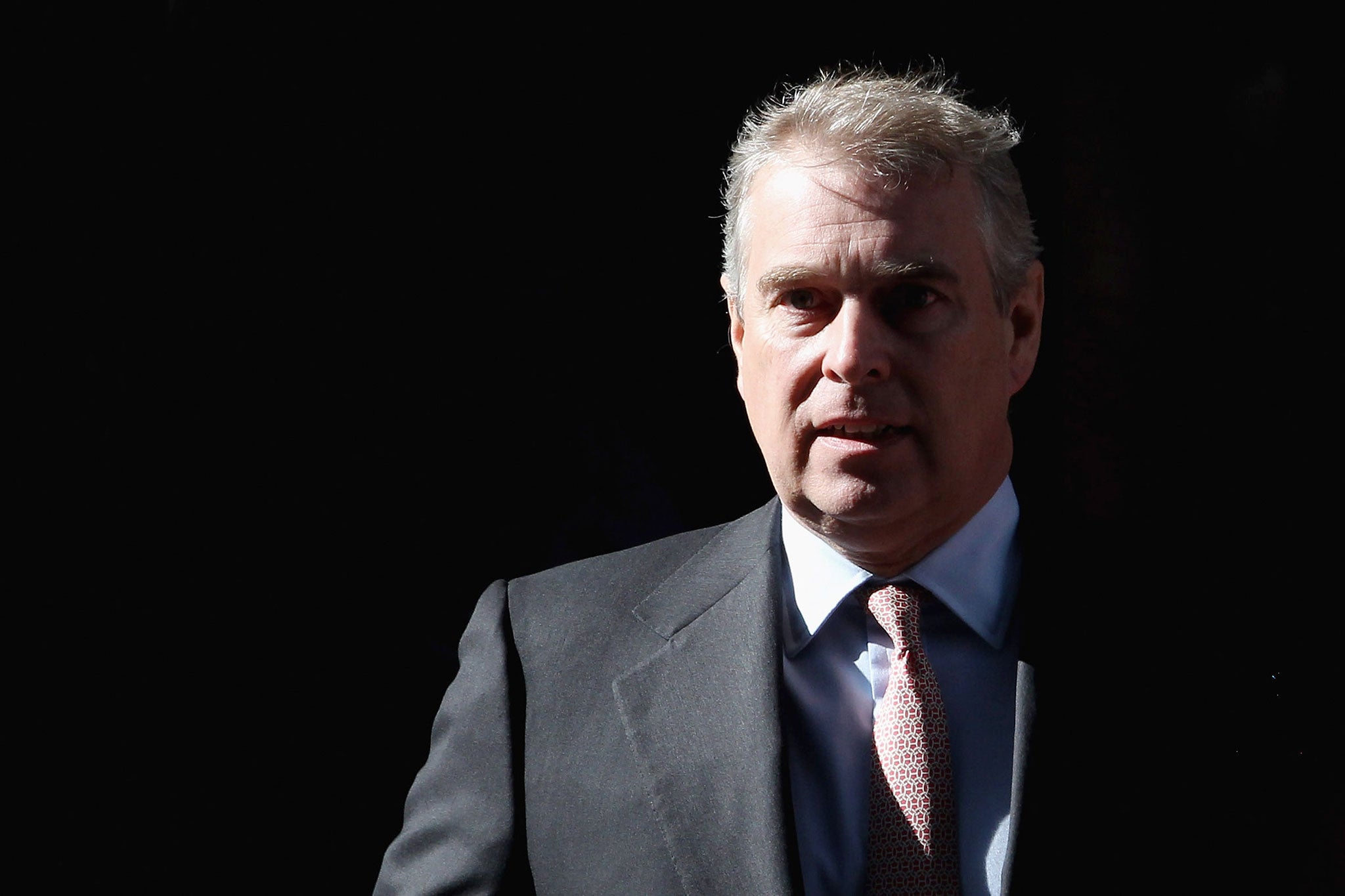The presumption of innocence is essential — but it should never mean presuming the guilt of the accuser
Instead of jumping to anyone's defence, we need to listen to both sides of the story objectively, and not assume that the accuser is lying

If there was one thing that was pretty predictable when allegations surfaced against Prince Andrew of sex with an underage girl, it was that the alleged victim was going to have a rough time of it in the court of public opinion.
As a culture, we have a knee-jerk urge to dismiss allegations of sex offences as lies, an inclination to sympathise more with the accused than the accuser. Buckingham Palace has asserted that “for the avoidance of doubt, any suggestion of impropriety with under age minors is categorically untrue”. And Alan Dershowitz, the Harvard law professor also implicated in the claims made by Virginia Roberts, has declared that allegations against him “should not be believed”, and therefore allegations towards Prince Andrew should also be “presumed” to be untrue.
Dershowitz has now begun legal proceedings in the US to clear his name. He has filed papers at a court in Florida, where the case is being heard, to contest what he described as “absolutely outrageous claims”. Mr Dershowitz had previously told the BBC: “My goal is to bring charges against the client and require her to speak in court. If she believes she has been hurt by me and Prince Andrew, she should be suing us for damages. ”I welcome that lawsuit. I welcome any opportunity that would put her under oath and require her to state under oath these false allegations."
Whatever the facts may be of this particular case, when allegations like these surface against high-profile men, it’s hard to avoid hearing the phrase “he’s innocent until proven guilty!” from many commentators. But is this really an objective reading of the law? The presumption of innocence is one of the basic tenets of our legal system, but its particular use within public discourse about sexual assault should give us pause.
From a legal perspective, feminist writers like The Guardian’s Jessica Valenti have suggested reversing the burden of proof, so the onus is on the defendant to prove his innocence. The idea is not unheard of: as part of India’s rape law reforms, the Indian Evidence Act 1872 now includes a clause that if the victim alleges that there was no consent, there is a presumption of no consent. But the difficulties with this are obvious: such a burden is incredibly heavy upon the defendant.
In reality, the presumption of innocence has become problematic in its wider usage outside the courtroom. Whether we like it or not, this has an unavoidable influence on criminal proceedings. So instead of going down Valenti’s line of thinking, we need to effect cultural changes rather than legal ones. The problem is not the presumption of innocence itself, but how it has been misinterpreted by the public.
Under the presumption of innocence, we tend not to draw conclusions about the accused, but we’re often not willing to grant this same understanding to the person who says they’ve been abused. We need to listen to both sides of the story objectively, leaving our preconceptions at the door. If we don’t, the pattern of disbelief that we’ve fallen into will only continue to shrink the already small proportion rapes being reported.
The law, in general, has not - and may never give - us an entirely suitable framework to address sexual assault. There is a notoriously low conviction after trial rate, with women who don’t fit the "ideal rape victim" bill often unable to secure justice. In light of this, when we declare “innocent until proven guilty!” we are naively trusting in the ability of the law to deliver a just outcome.
In championing the presumption of innocence for the defendant, there’s a tendency to descend upon the complainant, and try to destroy their character and credibility. Instead, our immediate reaction when alleged victims do come forward should not be to question their reliability, but to listen – which, as a society, we have a hard time doing.
Presuming the innocence of the accused does not mean demonising the accuser. Presuming the innocence of the accused does not mean refusing to listen to them. Even a failure to convict does not “prove” innocence or discredit the initial accusation. So it’s about time the presumption of innocence stopped being used as a front for victim-blaming.



Join our commenting forum
Join thought-provoking conversations, follow other Independent readers and see their replies